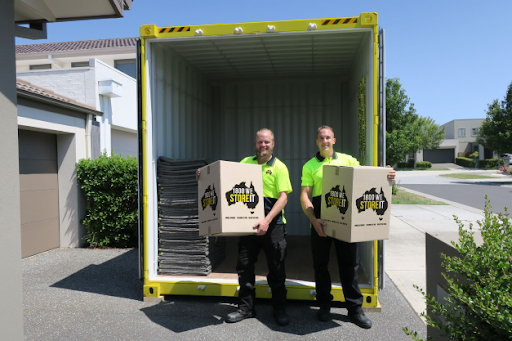The most common bath time issue is the fear of getting soap in one’s eyes. Kids have a good memory for pain and it only takes one soapy, teary experience for them to want to avoid bath time all together. Besides soapy eyes, many kids don’t like water on their face.
How long should bathtime be for toddlers?
Keep it short and sweet. Cap toddler tub time at 10 to 15 minutes. Any longer and you put your clean cutie at risk for dry skin. And end every suds session with a full-body fragrance-free-moisturizer massage.
What age should child bathe themselves?
Bathing alone, however, can be risky because of drowning dangers, and it can take just a few seconds for even older kids to slip and drown in only a few inches of water. Because of this, many experts suggest waiting until your child is at least 8 before allowing him to dunk in the tub alone.
At what age do you stop supervising baths?
Results For bathing, the mean age was 6.6 (range, 2-15) years; mean ages were 1.0 year older among Hispanic white parents (95% confidence interval [CI], 0.5-1.4 years) and 0.8 year younger among parents whose child rode with an impaired driver in the past month (95% CI, 1.5 to 0.1 years).
Why does my 15 month old hates the bath?
Often, it’s because kids are afraid of getting water in their eyes, or they hate having their hair washed. Perhaps they’ve slipped and accidentally gone underwater and that’s left them shaken. Sometimes all it takes is one bad experience in the tub to turn them off.
Why does my 10 year old not want to shower?
Rule Out Mental or Physical Health Problems. One of the most important things to consider about kids who have poor hygiene is that refusal to shower, bathe, or brush their teeth can sometimes be a symptom of depression, bipolar disorder, trauma, or another mental health issue.
At what age should siblings stop taking baths together?
Generally, a good age to stop bathing siblings of different genders [together] is 4 years old, says Dr. Fran Walfish, Beverly Hills child, parenting and relationship psychotherapist, author of The Self-Aware Parent and co-star of Sex Box on WE tv.
Is it better to bathe a baby in the morning or at night?
Some parents opt for morning baths, when their babies are alert. Others prefer to make baby baths part of a calming bedtime ritual. If you bathe your baby after a feeding, consider waiting for your baby’s tummy to settle a bit first.
Is it OK for toddler to take a bath at night?
Your child will be fine with a bath every other night. Children need adult supervision in the bath until at least age 4, so if you don’t have time to be with them that night, it can wait for the next opportunity. Eczema and other skin conditions are other reasons to not bathe every day.
Is it illegal to shower with your child?
There is not a per se law against bathing with a child— but it’s a very quick way to get charged with indecency with a child, especially if the adult and the child are both unclothed.
How often should 8 year old shower?
The American Academy of Dermatology recommends bathing children age 6-11 once or twice a week or when: They get dirty from playing outside. They finish swimming in a pool, lake, or ocean. They get sweaty or are dealing with body odor.
What age should a child wipe their own bottom?
With that said, most schools require kids to be toilet trained and able to wipe their own bottom by the time they start kindergarten (which starts at age 4 here in Canada), so that’s a good age to aim for.
How do I teach my child to shower himself?
Put soap on body and scrub. Teach a top-down approach to make sure the child doesn’t forget a body part. Bring in a mirror the first few times, to show him where and how much they’ve soaped. Remind them to wash behind the ears!
How can I make my toddler’s bathtime fun?
10 Ways to Make Bath Time More Fun and Relaxing
- Change of Scenery. If your family has more than one bathroom, sometimes a simple change of scenery is all you need to add some excitement into your kid’s bath routine. …
- Add Fun Music. …
- Grooming Accessories. …
- Treat Them. …
- New PJs. …
- Color the Bath Water. …
- Noodle Time. …
- Bubble Machine.
Why do babies cry when taking a bath?
Hunger and restlessness may be the reason why your baby cries during the bath. So, always make sure he is well-fed and well-rested before you take him for a nice bathing session.
How do I overcome Ablutophobia?
Self-care practices, such as meditation, exercise, and avoiding caffeine, can help people keep symptoms of ablutophobia in check. They can also practice other self-help techniques to manage their fears and prevent relapses, but treatment is usually an essential first step.
How often should teenage girl shower?
For tweens and teens However, 2-3 showers or baths per week may be sufficient for some teens. Additional showers will be necessary for teens after playing sports or sweating heavily. Hands should be washed as needed. Teens should wash their faces twice each day to remove oil and dirt.
How do I get my 12 year old to shower?
Addressing Shower Resistance
- Don’t turn it into a power struggle. As soon as you make showering my way or the highway you’re bound to get into an argument. …
- Be curious. …
- Brainstorm together. …
- Revise if necessary. …
- Talk about good hygiene. …
- Look for the positive. …
- Wait for maturity.
Why would a guy want to shower with you?
If he wants to take a shower with you, then he is attracted to you and he won’t mind some imperfections. Allow the water to wash away the final barrier between you and him and connect on a physical and emotional level. When you shower with a man all he sees is you, and you are enough.
At what age does a child need their own room?
2 In the A-level recommendationthe Academy’s strongest evidence ratingthe AAP said that room-sharing should continue at least until the baby is 6 months old, ideally until 12 months. The 2017 study suggests that it may actually be better for babies to have their own rooms starting at the age of 4 months old.
At what age should my son and daughter stop sharing a room?
It’s important to know there are laws in place to help make sure everyone’s home is safe and comfortable. Legislation states children over the age of 10 should not share rooms – and that this can be considered overcrowding.
When should we start tummy time?
When To Start Tummy Time With Baby The American Academy of Pediatrics says parents can start tummy time as early as their first day home from the hospital. Start practicing tummy time 2-3 times each day for about 3-5 minutes each time, and gradually increase tummy time as baby gets stronger and more comfortable.
How often should you wash newborn hair?
You don’t need to wash their hair every day. Your baby’s hair produces very little oil, so once or twice a week is fine (Blume-Peytavi et al 2016). If your baby has cradle cap, you may want to wash their hair more frequently with a mild baby cradle cap shampoo .
Why do babies sleep longer after a bath?
After coming out of a warm bath, a baby’s body temperature starts to cool, which can help your infant fall asleep more easily.
How often should a 2 year old bathe?
Bathing your toddler 2-3 times a week is usually enough to keep them clean. But you do need to wash toddlers’ faces and genitals every day. And if your toddler gets dirty from playing or enjoys bath time, a bath every day is fine. A bath at the end of the day can also be part of a relaxing and calming bedtime routine.
How do you clean a toddler girl’s private area?
To clean your baby girl’s labia, wet a cotton ball with warm water, hold your baby’s legs apart and wipe between the labia with the cotton ball. Start at the front and gently wipe backwards. Use a new cotton ball if you need to wipe again. Dry your baby’s genital area by gently patting with a soft towel.
How often should a child shower?
Thankfully, most kids want to bathe daily once they hit puberty. Dermatologists tell parents that once puberty starts, kids should: Shower or take a bath daily. Wash their face twice a day to remove oil and dirt.


